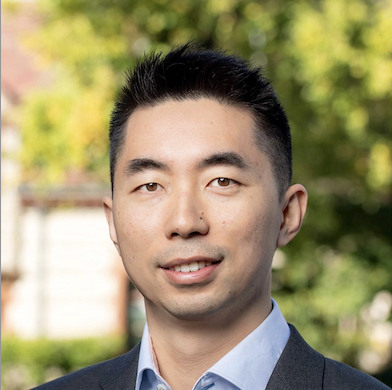Tongyin Zheng is the recipient of the Judith and Jean Pape Adams Postdoctoral Award

Tongyin Zheng, a postdoctoral scientist in the Fawzi lab, is this year’s recipient of the Judith and Jean Pape Adams Postdoctoral Award. Established in 2022* with a gift from the Judith and Jean Pape Adams Charitable Foundation, the award supports a postdoctoral researcher studying amyotrophic lateral sclerosis (ALS) or other neurodegenerative diseases.
“This award is an important part of the Carney Institute’s commitment to bridging clinical and foundational research to catalyze discovery into neurodegeneration. Nurturing postdoctoral scientists as they advance in their careers is also an important priority of the Institute,” said Kristin Webster, assistant director of training and development in the Carney Institute. “We are delighted to be able to launch this award for postdocs studying neurodegeneration and in particular to support Tongyin this year.”
Long fascinated with the underlying molecular mechanisms of the brain, Zheng was drawn to neurodegenerative research due to the impact his work could have on such devastating diseases. The opportunity to do collaborative research and team-up with cutting-edge neuroscientists like Nicolas Fawzi, a leader in the field of protein phase separation and aggregation, was what drew him to Carney.
“Many proteins in cells go through a process called phase separation, where they assemble into functional liquid-like droplets that perform important functions. In neurons, sometimes phase separation can go wrong and these proteins solidify into what we call aggregates. These aggregates eventually become inclusions, tangles, or plaques that block important brain processes or are toxic to the cells, resulting in a neurodegenerative disease. Studying how and why proteins separate and aggregate is central to neurodegenerative research,” Zheng explained.
Zheng is leading work on two ALS-related projects which study the FUS (Fused in Sarcoma) protein, mutations of which have been linked to ALS. His first project studies how normal FUS proteins form critical interactions with their binding partners including structured forms of RNA to carry out functions in cells, including transcription, RNA processing, and stress response. His second project studies ALS mutations in FUS and associated pathogenic pathways, probing the initial aggregation process of FUS to understand how key mutations disrupt the physiological structure of the protein and cause the formation of disease-associated aggregates.
“In the short term,” Zheng said, “we aim to reveal structural details of FUS functional interactions and how they change in neurodegenerative diseases such as ALS. In the long term, we hope to shed light on the common etiology of neurodegenerative diseases. Understanding how disease-associated aggregates form on a molecular level and their impact on neuronal health could pave the way for the development of targeted therapies and interventions that could potentially slow down or halt the progression of these devastating diseases.”
“Tongyin is at the brink of important discoveries in FUS-RNA structural biology in ALS,” said Fawzi. “He is a leader in the laboratory, staking out new ground in basic science, looking ahead to how his advances could make an impact in human health, and serving as an active and generous mentor for several junior scientists.”
The Pape Adams Postdoctoral Award includes up to $75,000 annually to cover the awardee’s salary and benefits, and up to $5,000 for professional development activities including conference travel. Postdoctoral scientists already at Brown or starting a position at Brown before the end of the calendar year are eligible for this one-year award, with the potential to renew for a second year.
Zheng takes up the position this month.
*In 2022, Jayakrishna Shenoy became the first postdoctoral student supported by the Judith and Jean Pape Adams Postdoctoral Award.



